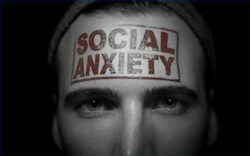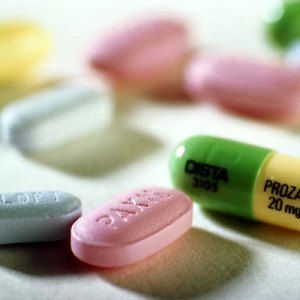The first time they met, the psychiatrist who treated Aurora theater shooter James Holmes prescribed him psychiatric drugs linked to violence and homicide, even though Holmes openly admitted he was obsessively having thoughts of killing people.
In fact, Holmes told the psychiatrist that his homicidal thoughts “were the worst they had been.”
Some time after taking the psychiatric drugs, Holmes writes in a notebook that the “first appearance of mania” occurs, that he has “no fear of consequences,” and that his “hatred [is] unchecked.”
Holmes is currently standing trial on charges related to his killing 12 people and injuring 70 others in an attack on the Aurora Century 16 movie theater during a packed, midnight screening of the film “The Dark Knight Rises” on July 19, 2012.
Holmes was a graduate student in the neuroscience program at the University of Colorado when he contacted the Student Mental Health Center for help with his obsessive thoughts of killing people and his anxiety in social situations. He was referred to psychiatrist Lynne Fenton for treatment. He met with Fenton five times in the final months before he dropped out of school. He went on his deadly rampage a few weeks later.
In a notebook where Holmes recorded his thoughts during the time he was meeting with Fenton, he noted that at their first meeting, Fenton “immediately prescribed antidepressants.” The notebook entry went on to report that the drugs were ineffective: “No effect when needed.”
This is followed by a chilling series of statements: “First appearance of mania occurs, not good mania. Anxiety and fear disappears. No more fear…. No fear of consequences… No more fear, hatred unchecked.”
Meds psychiatrist prescribed are on list of drugs most associated with violence
According to Fenton’s court testimony, Holmes told her at their first meeting about his obsessive thoughts about killing people. He used the psychiatric term “OCD” (obsessive compulsive disorder) to describe the recurring thoughts.
Fenton testified about Holmes having these homicidal thoughts (“ideation”): “He said that his OCD symptoms – and that was referring to his thoughts of homicidal ideation – were the worst they had been.”
Fenton prescribed the psychiatric drugs sertraline and clonazepam to Holmes for his anxiety at that first meeting.
Both drugs are on the list of prescription drugs most associated with incidents of violence reported to the FDA, according to a 2010 study in the Public Library of Science ONE (PLoS One). After reviewing data from the U.S. Food and Drug Administration’s adverse event reporting system, the authors of the study concluded that 31 drugs were disproportionately associated with violent thoughts and actions – including homicide. These 31 drugs accounted for 79% of all the reports of violence the FDA received from 2004 through September 2009.
Sertraline, marketed under various names including Zoloft, is a drug in the newer class of antidepressants known as SSRIs (selective serotonin uptake reinhibitors). To date, 34 studies and 26 warnings issued by international drug regulatory authorities have warned about the dangers of sertraline and other SSRI antidepressants. The very long list of dangerous side effects include abnormal behavior, emotional changes, suicide, anxiety, agitation, aggression and violence.
Clonazepam, marketed as Klonopin, is a DEA schedule IV controlled substance in the class of addictive drugs known as benzodiazepines, which the U.S. Drug Enforcement Administration (DEA) warns can cause hostility. The Canadian national public health department, Health Canada, warns that clonazepam can cause hallucinations and delusional thinking.
The next two meetings between Fenton and Holmes were short “meds checks.” Fenton discontinued the clonazepam when Holmes reported it was ineffective. She recommended another antipsychotic drug, quetiapine, marketed as Seroquel.
Quetiapine (Seroquel) is also on the PLoS One’s list of the 31drugs most associated with violence.
Holmes declined to take Seroquel.
Psychiatrist testifies: “No indication of any threat from him”
In her meetings with Holmes, Fenton asked him to tell her more about his obsessive thoughts of killing people, according to her testimony in court, but he withheld any further information, saying he “won’t give details” or refusing to give any answer at all.
He did admit to her that he hated people. Fenton testified that in one meeting, Holmes emphasized he wouldn’t hurt himself, but she said that he left her with the impression he could hurt others.
Holmes told her that he “had read Nietzsche, Kaczynski, and the Tylenol terrorist.” Nietzsche was a German philosopher whose rejection of any universal moral law was summarized in his statement “God is dead.” Ted Kaczynski is the serial killer known as the Unabomber. The so-called Tylenol terrorist caused deaths through drug tampering.
Still, Fenton apparently believed him when he said he had no specific plans for killing and no specific targets in mind. She testified that there was “no indication of any threat from him.” She saw no change in his demeanor during the months she met with him, testifying that there was “no difference in presentment” between their first and last meetings.
Meanwhile, Holmes’s notebook shows that during the time he was meeting with Fenton, he was actively formulating elaborate plans for mass murder. He acquired weapons, explosives, and other equipment to carry it out. He practiced shooting at a target range.
Fenton testified that at her final meeting with Holmes on June 11, she “still had significant concerns about his homicidal thoughts and dangerousness.” But she also testified that she “thought he was functioning well” and that his plans for his life after dropping out of graduate school “made sense.”
After their final meeting, Fenton never called or followed up with Holmes.
Five weeks later on July 19, Holmes suited up in body armor, armed himself with weapons, a gas canister and gas mask, and set out to commit mass murder. He also left his apartment booby-trapped with explosives in an attempt to cause even more fatalities.
Holmes sent his notebook to psychiatrist to educate her
Entries in his notebook show contempt for Fenton and another psychiatrist, Robert Feinstein, whom Fenton brought into two of the five meetings she had with Holmes. He referred to the psychiatrists as “mind rapists.”
After writing that he intended to “deflect incriminating questions” from the psychiatrists about his thoughts of killing, he indicated they made that easy, noting: “Oddly, they don’t pursue or delve farther into harmful omissions.”
He challenged Fenton in one meeting, asking her “Are you just a pill pusher?”
Holmes mailed his notebook to Fenton just hours before his deadly attack on the theater. In an interview two years later, Holmes said he mailed the notebook to Fenton to educate her so that “something like this wouldn’t happen again.”








